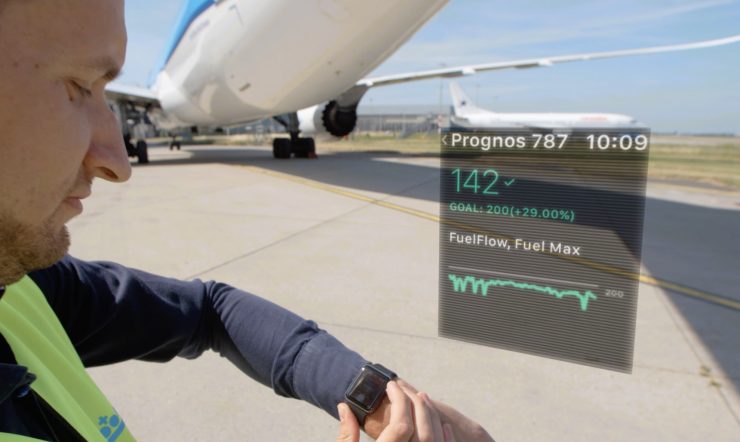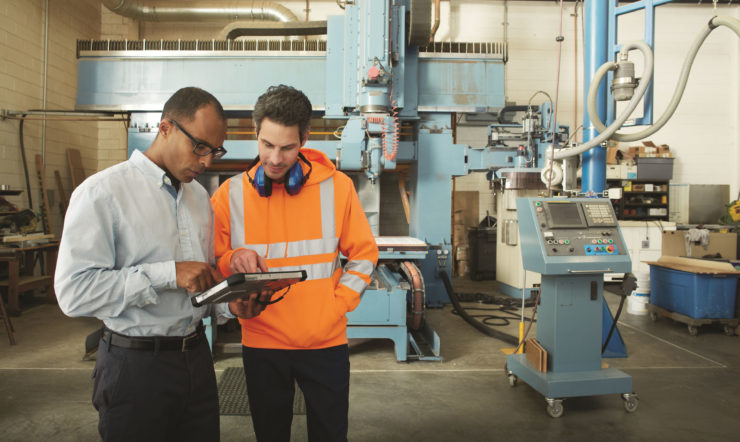2020 has been an unpredictable and transformative year for every industry. But no sector has felt the impact of COVID-19 quite as acutely as healthcare.
Hospitals and other healthcare institutions all over the world have had to adapt quickly to a situation that is changing and evolving every day. A major aspect of the challenge those institutions have faced is in trying to predict which patients are going to be most seriously affected by the virus when they are first diagnosed.
Evidence suggests that only 5-10% of patients affected by COVID-19 develop the most serious form of the disease. But if there were a way of identifying those people as soon as – or even before – they contracted the virus, then it would allow for preventative measures to be put in place to protect the most vulnerable.
This type of early warning would greatly reduce the impact on the health service, helping to avoid delays in hospitalizing high-risk patients and assure that treatment can begin swiftly – before they reach a life-threatening phase of the disease.
That is exactly what professors at IRCCS San Raffaele Hospital in Italy have been working towards. And they have been using Microsoft cloud and Microsoft artificial intelligence (AI) technology to help them achieve their goal.
Establishing AI-SCoRE
IRCCS San Raffaele Scientific Institute is a university and research hospital based in Milan, Italy. Established in 1971, the hospital has a long history of providing specialized care to patients all across Italy for the most complex and difficult health conditions.
In early 2020, doctors found themselves in the position of using every resource available to try and limit the spread and impact of COVID-19. They realized that they were unable to efficiently predict who would be affected most gravely by the virus. But an “intelligent” multiparametric approach to the patient may allow them to reach this goal.
“During this first phase of the COVID-19 outbreak we have found it difficult to efficiently identify the most fragile patients among those with the first symptoms of the disease,” says Carlo Tacchetti, Director of the Center of Experimental Imaging at IRCCS San Raffaele.
To tackle this problem, IRCCS San Raffaele has worked with partners Microsoft, NVIDIA, Porini and Orobix on a project called AI-SCoRE, which uses autonomous learning technology to calculate the likelihood of individuals developing the most severe forms of COVID-19.
“We want to be able to identify these patients quickly and precisely,” explains Tacchetti. “Because only in this way will we be able to understand who are the people that, once infected, need prompt treatment, even in the absence of serious symptoms.”
Using AI to predict patients’ risk
The AI-SCoRE platform that IRCCS San Raffaele is developing is based on the latest Microsoft data analysis and AI technology. It allows for the collection, processing, management and use of heterogeneous data that comes from multiple sources, with total respect for patient privacy.
In the first stage of AI-SCoRE’s implementation, IRCCS is collecting data from 2,000 patients who have been recently hospitalized with a known diagnosis of COVID-19. Once that data has been collected, an AI algorithm – which integrates diagnostic images, clinical and laboratory parameters, inflammatory status, and the genetic profile of the patient and the virus – will be used to analyze the data and predict the level of risk posed to an individual patient.
It is extraordinary work that will provide medical and research personnel at IRCCS San Raffaele with timely and detailed information that will be used to support the decision-making process at various phases of the hospital’s emergency response to the 2,000 patients under test.
But IRCCS’s goal is much larger than just the patients currently under test. “Obviously, our dream is to go beyond this first step,” says Tacchetti. “We want to develop transversal algorithms capable of identifying the subjects most at risk also in the general population, and not only in those with suspicion of having COVID-19.”
If successful, it could be a pivotal moment in the global fight against the virus.
A new reference point for quality
“Artificial Intelligence is helping to fight the pandemic in multiple ways,” says Francesco Torricelli, NVIDIA Country Director for Italy and Iberia, whose company has worked closely with Microsoft and IRCCS San Raffaele to develop the technology used in the AI-SCoRE project.
“Accelerated computing AI platforms and NVIDIA software are being used around the world to help sequence and analyze viral and patient genomes, monitor the spread of infections and the progression of mobility, accelerate the development of new drugs, and classify and segment diagnostic images,” he explains.
“The San Raffaele hospital project establishes a new quality reference point in terms of personalized medicine,” Torricelli adds.
Using technology to help healthcare institutions do even more in the fight against COVD-19 is one of Microsoft’s key objectives. “We want to use AI systems to analyze large quantities of heterogeneous data and understand the factors that determine the health conditions of each, thus accelerating the implementation of personalized and precision medicine,” explains Veronica Jagher, Health Market Director for Microsoft Western Europe.
“AI-SCoRE goes exactly in this direction,” she adds. “It combines the skills of the various partners to help healthcare providers be even more effective and allow everyone access to the best treatments, in all phases of the emergency.”
It is groundbreaking work that offers healthcare institutions everywhere a glimmer of hope during this challenging time.

























